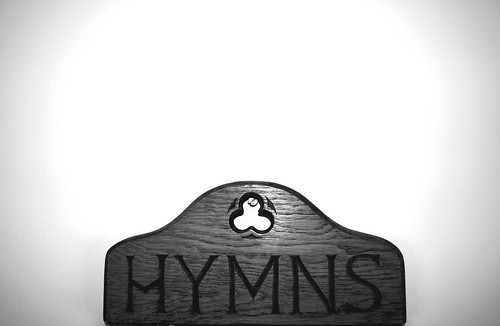The central theme of our Christian faith is the death and resurrection of Jesus. In his time of prayer before the whole saga began he said in Matthew 26:39, “My Father, if it is possible, let this cup pass from Me; yet not as I will, but as You will.” This selfless act of service is the ultimate act of worship. Most people think of the cross as a great act of worship and it was, but the purpose of the cross was not worship. The purpose of the cross was redemption.
Worship Through Obedience
The real act of worship was found in the words “?yet, not as I will, but as you will.”? That simple phrase shows us the greatest act of worship anyone can ever give: obedience!
As a worship leader, I sing songs of worship to the Lord all the time. Simply sitting around the house I am often singing worship songs, or listening to a new worship album. However, this, while it is an act of worship, does not reach the Father’s heart as much as obedience.
Jesus himself told us to be obedient before he modeled obedience to us. He says in John 14:15 that if we love him, we keep his commandments. What does it mean to keep his commandments? Keeping His commandment means obeying him.
Obedience Requires Discipline
As Christians we need to live a life of worship. We often equate worship with songs and music. When we do this, we miss the most important act of worship. We are willing to worship God as long as it doesn’t require work. Singing is simple: practically everyone does it whether it is public or simply while in the shower, but obedience is work. Obedience requires discipline.
To be obedient you need to know God. You need to know his word, and the things he has asked of us. Jesus was being tested on his doctrine by the Pharisee’s when they asked him “What is the Greatest Commandment” He responded to them, “Hear Israel, The Lord your God is one God and you shall love him with all your heart, soul, mind, and strength.” Then he shared the second greatest commandment, “Love your neighbor as yourself.”
We can sing all the songs we want but if we aren’t able to follow these two commandments we are missing the point of obedience as an act of worship. Now, I know there are more commandments than simply these, but we have trouble with these.
Think about this: James said, “True religion is to love and serve the widows and orphans.” How are we as worshipers helping those in need? Obedience is the key to worship. If we can learn to be obedient with our lives all other forms of worship will be increased.
Real-Life Example of Worship Through Obedience
If you are looking for a practical example of this I would recommend looking at the band Gungor.* A long side of his music ministry and creativity in his worship music, his local church community Bloom in Denver, Colorado is actively involved with Child Sponsorship, and programs to rescue women from sex trafficking.
(*Editor’s note – Gungor is a little out-of-the-box for a lot of the audience reading this blog but they are doing some incredibly artistic work while still holding on to Biblical teachings as well as challenging Christian artists to not be molded into mainstream Christian pop culture. You might disagree with some of their methods, but know that they are impacting a lot of people greatly for the kingdom of God.)
Also the International house or prayer sponsors orphanages, disaster relief programs, homeless shelters and soup kitchens
True worship is actively intertwined with justice. We as worshipers need to be not only musicians, but obedient servants.
What practical acts of obedience have you seen through others?
Mathew Reames is a Servant of The Lord. He is currently Serving as a ministry intern in Lawrence, KS. He is a missionary, worship leader, and blogger. You can read his musings at http://matreames.tk












